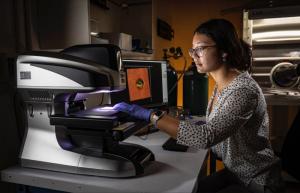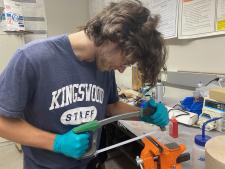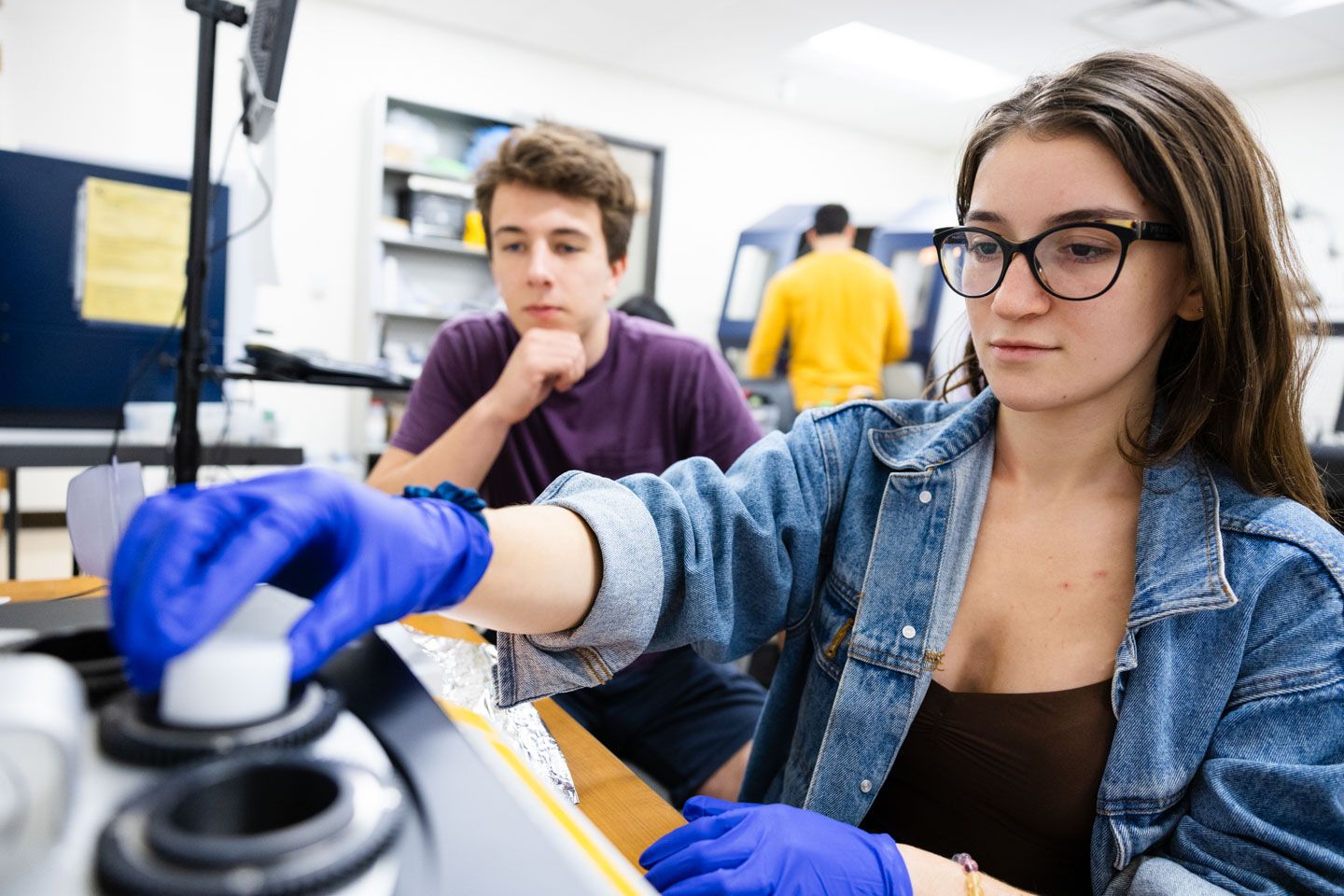Undergraduate Programs

Current Students: Here's the Curriculum Guide and Curriculum Worksheet!
Why Choose MSE?
Everything is made of something. In Materials Science and Engineering (MSE), we study that something. From aerospace components to biomaterials and from nanoscale technology to 3-D printing, Materials Scientists and Engineers study the structure and properties of all kinds of materials and how we can process those materials to improve their affordability, durability and performance.
Our Programs
-
B.S. in Materials Science and Engineering
The MSE major offers students an in-depth study of the field of materials science and engineering and prepares students for careers in research, development and manufacturing.
-
Materials Science and Engineering Minor
The MSE minor provides students with a foundation for understanding how the processing, properties and structure of materials affect the science, design, and application of materials in the engineering discipline of your major field of study.



Resources for Current Students
-
Student Support
As an undergraduate student at UVA Engineering, you have access to an array of student support services including peer-to-peer tutoring, professional academic coaching, access to mental health support, and dedicated advising.
-
Academic Advising
Every student has an advisor in the Engineering School. While there are many resources for support at the University, we encourage students to advocate for themselves to the best of their ability and seek out support early and often.
-
Student Life
Discover more about student life at UVA and in Charlottesville.
Get In Touch
Claire Culver
Maggie Rake
Every engineer should try and take at least one MSE course, as it opens a whole new world of understanding of the world from mechanics to electronics to corrosion.
 Marcus Dozier
MSE Alum
Marcus Dozier
MSE Alum

Undergraduate Research
Undergraduate researchers are mentored by faculty and work closely with the lab’s graduate students and post-doctoral fellows. They are valued lab members, attending lab meetings and participating in journal clubs. They co-author publications, present at national meetings, and fund their own research through competitive awards.
Quick Links
Objectives & Outcomes
The goal of the BS in Material Science and Engineering is to prepare students for careers in research, development, manufacturing, and other technical positions that demand interdisciplinary training in the context of all materials used by society.
ABET Accreditation Information and Graduation Data:
The Bachelor of Science degree in Materials Science & Engineering (MSE) at the University of Virginia (UVA) is accredited by the Engineering Accreditation Commission of ABET, HTTPS://WWW.ABET.ORG.
Graduation data for the Materials Science & Engineering (MSE) degree program is included on the UVA ENGINEERING UNDERGRADUATE ENROLLMENT AND GRADUATES webpage.
The goal of the BS in Material Science and Engineering is to prepare students for careers in research, development, manufacturing, and other technical positions that demand interdisciplinary training in the context of all materials used by society in their entirety from electronics, cell phone materials, car tires, engines, plastics, metals, aerospace materials to dental fillings, stents, and implants. The program provides students with a strong foundation in the physical sciences, coupled to engineering practice in order to solve technical problems relevant to nearly every aspect of modern society from cleaner energy production and manufacture of lighter materials, faster microelectronics, and telecommunications devices, all the way to improved healthcare, sustainability, and biotechnology. Students apply fundamental science and engineering concepts to materials science and engineering problems, and learn to effectively communicate solutions to challenges within an interdisciplinary environment. Graduates will be prepared to work in a range of engineering sectors and will be capable of working within diverse environments and adapt problem solving skills based on the on the shifting client / employer needs.
1. Apply their understanding of the materials science paradigm to advance the research/ design/selection/sustainability of materials.
2. Use their analytical and problem-solving skills as the foundation for productive and fulfilling careers.
3. Employ versatile and interdisciplinary approaches, and a solid ethical grounding, to contribute to society.
4. Combine technical competence, excellent communication skills and a propensity for lifelong learning to lead organizations, drive change and foster success.
1. An ability to identify, formulate, and solve complex engineering problems by applying principles of engineering, science, and mathematics.
2. An ability to apply engineering design to produce solutions that meet specified needs with consideration of public health, safety, and welfare, as well as global, cultural, social, environmental, and economic factors.
3. An ability to communicate effectively with a range of audiences.
4. An ability to recognize ethical and professional responsibilities in engineering situations and make informed judgments, which must consider the impact of engineering solutions in global, economic, environmental, and societal contexts.
5. An ability to function effectively on a team whose members together provide leadership, create a collaborative and inclusive environment, establish goals, plan tasks, and meet objectives.
6. An ability to develop and conduct appropriate experimentation, analyze and interpret data, and use engineering judgment to draw conclusions.
7. An ability to acquire and apply new knowledge as needed, using appropriate learning strategies.
Upcoming Events
See All Events-
Time: 11:00 AM - 2:00 PMLocation: Newcomb Hall Ballroom
-
Time: 3:30 PM - 4:30 PMLocation: Olsson 001
The information contained on this website is for informational purposes only. The Undergraduate Record and Graduate Record represent the official repository for academic program requirements. These publications may be found here.
